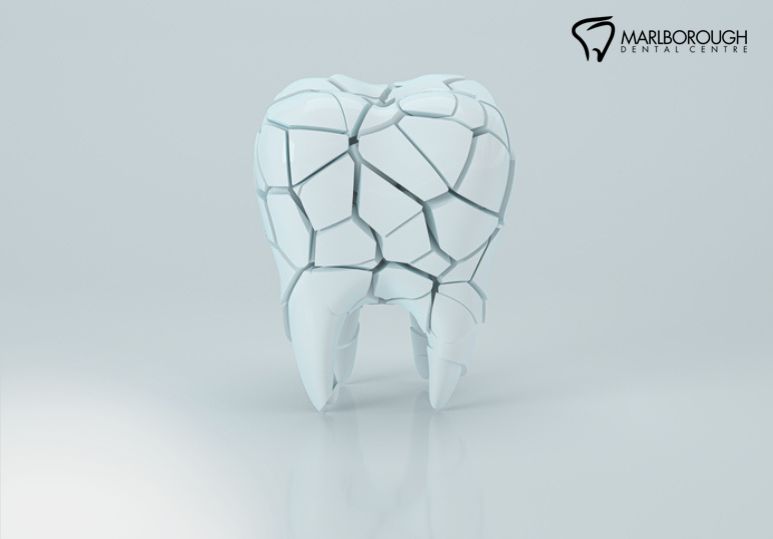Restorative Dentistry Treatment Options
Dental Fillings
Dental fillings are a common restorative dentistry treatment used to treat cavities and prevent tooth decay from spreading. The dentist will remove the decayed part of the tooth and fill it with a durable and wear-resistant material. Dental fillings not only protect teeth from further decay but also alleviate sensitivity to hot and cold temperatures.
Root Canals
Root canal therapy is a procedure used to treat infected or inflamed pulp within a tooth. The dentist will remove the infected tissue and clean the pulp chamber and root canals. Once the tooth is cleaned, the dentist will fill the tooth and restore it with a crown or filling. Root canals save natural teeth from extraction and prevent the spread of infection.
Dental Crowns
Dental crowns are custom-made caps that fit over damaged teeth. They are used to protect teeth that are severely damaged and cannot be restored with fillings. Crowns are cemented to the tooth, restoring its function and appearance. Crowns can be made of a variety of materials, including porcelain, ceramic, and metal.
Dental Bridges
Dental bridges are restorative dentistry solutions for patients who have lost one or more teeth. They consist of artificial teeth that are anchored to the adjacent teeth using dental crowns. Bridges restore the function and appearance of the teeth, preventing shifting and misalignment of the remaining teeth.
Full/Partial Dentures
Dentures are a restorative dentistry option for patients who have lost multiple teeth or all of their teeth. They consist of artificial teeth attached to a gum-coloured base. Dentures can be full or partial, depending on the number of missing teeth. Dentures are custom-made to fit the patient's mouth, improving the appearance and function of the teeth.
Dental Implants
Dental implants are a popular restorative dentistry option for patients who have lost one or more teeth. They are titanium posts that are surgically inserted into the jawbone, acting as a replacement for the natural tooth root. The implant is then topped with a dental crown, which looks and functions like a natural tooth. Dental implants are a durable, long-term solution for missing teeth.
Repair Or Replace A Damaged Or Lost Tooth With Restorative Dentistry
Restorative dentistry offers many benefits, including preserving the structure of the teeth, promoting oral health, and improving appearance. By repairing or replacing damaged or lost teeth, patients can restore their oral function and improve their confidence. If you have experienced tooth damage or loss, it is crucial to seek dental treatment as soon as possible. A dentist will assess your condition and recommend the optimal restorative dentistry option for you. Don't wait until it's too late – restore your oral health and confidence today.
No matter the cause or the issue, when you need restorative dentistry, Marlborough Dental Centre has the solution. We offer effective restorative dentistry techniques and we strive to preserve the natural structure of the teeth while maintaining their normal form, function, and appearance. At our NE clinic in Marlborough, our dentists can enhance your smile using the most up-to-date restorative dentistry technology that looks great and prioritizes your oral health. For restorative dentistry solutions from the experts at Marlborough Dental Centre, call 1-403-248-2066 or fill out the contact form.
FAQ
Q: Is a dental implant or a bridge a better way to replace my missing tooth?
A: That depends on your preference, your oral health, and the type of tooth loss. Dental implants and dental bridges both replace missing teeth, but dental implants help retain jaw bone density while bridges have no healing time. Once you have a dental implant, it will be as though you have a regular tooth, whereas a dental bridge may require you to floss around the artificial tooth with a dental threader as the tops of the teeth will be connected.
Q: If I have a toothache, does that mean I’ll need restorative dentistry?
A: While a toothache can be indicative of a cavity, cracked tooth, or infection, it can also be caused by other issues that do not require restorative dentistry. If you floss around the area and use a cold compress on the outside of the mouth and the toothache still persists for more than 1 or 2 days, visit us at Marlborough Dental Centre and we will examine your tooth to determine what steps to take next.
Q: How long do dental fillings normally last?
A: How long your dental filling will last will depend on how well you take care of your oral health, whether you grind your teeth, and how often you visit your dentist for regular dental exams. Typically, a dental filling will generally last 10-12 years.




